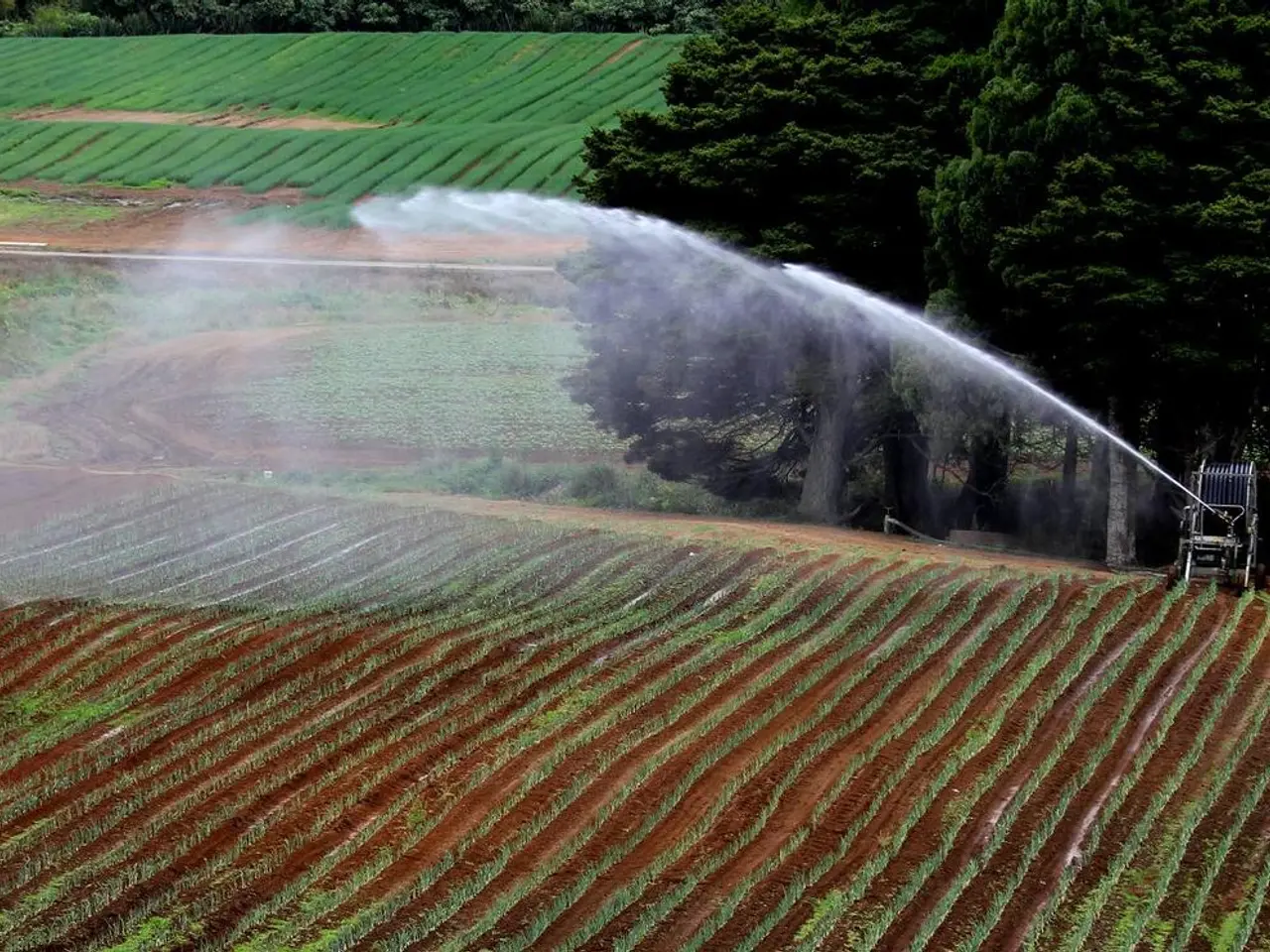Boosting Agricultural Equipment Productivity Right Now
In the ever-evolving world of agriculture, a modern approach is gaining traction: Precision Agriculture. This innovative farming method leverages technology to manage crops and soil more effectively, leading to increased efficiency, cost savings, better crop health, and environmental protection.
At the heart of Precision Agriculture are data-driven tools such as drones, soil sensors, and farm management apps. These technologies, when integrated into a data-driven decision cycle, maximise machinery efficiency and crop productivity.
One of the key tools in this modern farming arsenal is GPS. GPS-guided systems, like Autosteer Systems, guide machinery such as tractors and planters to follow exact paths, reducing overlaps and ensuring uniform field coverage. This not only saves fuel and time but also contributes to a more sustainable future by reducing resource waste.
Variable Rate Technology (VRT) is another crucial component. VRT allows machinery to adjust the amount of seeds, fertilizers, and pesticides applied based on spatial data like soil maps and crop health. This minimises waste, improves crop yield, and contributes to a more sustainable farming practice.
Real-time data collection is essential in Precision Agriculture. Sensors and IoT devices gather information about soil moisture, nutrient levels, and crop conditions, informing decisions about irrigation and input application. Drones, for instance, provide aerial imagery and multispectral data to assess crop health and detect problem areas early, enabling targeted interventions.
Automation and robotics are also transforming the farming landscape. Autonomous tractors and robotic planters, for example, reduce the need for manual labour, increase accuracy in planting, fertilizing, and harvesting, and adapt operations to varying field conditions using AI and machine learning.
Smart farming also involves the use of automated irrigation systems. These systems conserve water and boost yields by watering crops at the right times. Soil sensors, in particular, provide information about moisture and nutrients in the soil, allowing for efficient watering and fertilizing.
Energy efficiency is another critical aspect of Precision Agriculture. The adoption of energy-efficient farming equipment, such as electric tractors and solar-powered pumps, reduces greenhouse gas emissions, further contributing to a more sustainable future.
In the farm of the future, robots, drones, and data analytics will guide every decision. Precision farming plays a significant role in improving crop yields by collecting data, applying targeted treatments, and continuous monitoring. By adopting precision farming techniques, crop yields can be significantly boosted while also being kinder to the planet.
Embracing technology is the key to unlocking the full potential of agriculture. Precision Agriculture, with its focus on data-driven decisions, is leading the charge towards a more sustainable, efficient, and productive future for farming.
- The integration of technology in agriculture, such as drones, GPS-guided systems, and smart farming equipment like autonomous tractors and automated irrigation systems, not only boosts productivity but also promotes sustainable living by reducing resource waste and greenhouse gas emissions.
- In the realm of precision agriculture, variable rate technology (VRT) and real-time data collection play significant roles, enabling farmers to apply the right amount of seeds, fertilizers, pesticides, and water, based on spatial data, thereby minimizing waste, improving crop yield, and ensuring a more sustainable farming practice.




